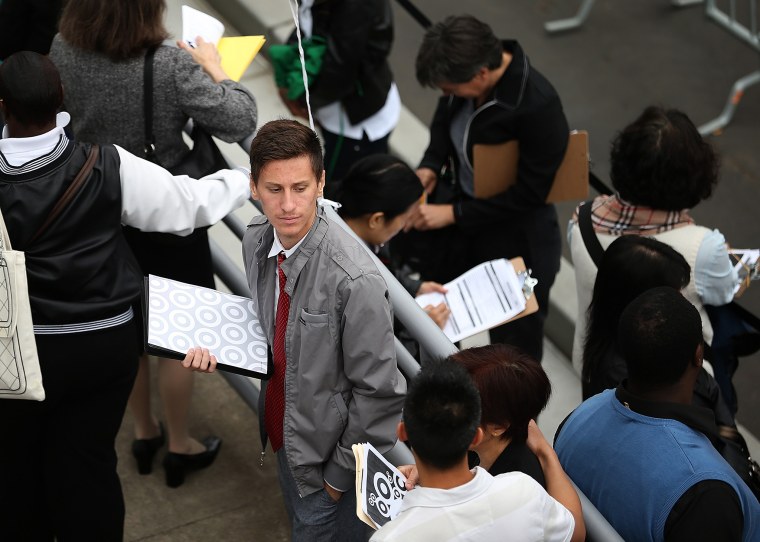The Republican strategy of governing by crisis has already worked to boost unemployment and slow economic growth, a new report from a conservative think tank concludes.
The report, released as the government shutdown approaches its third week and the country teeters on the edge of a debt default, finds that heightened economic uncertainty has cost 900,000 jobs—increasing the unemployment rate by 0.6%—and has significantly lowered GDP growth since the start of 2010.
“Based on this report’s findings, we can assert confidently that the crisis-driven fiscal policies of the last several years have damaged our still-struggling economy,” Joel Prakken of Macroeconomic Advisers, who prepared the report for the Peterson Foundation, said in a statement.
Economic uncertainty, Prakken told MSNBC in a phone interview, “is one of the reasons that the recovery from the Great Recession has been on the disappointing side.”
The study found that from the start of 2010 through this July, economic uncertainty—assessed via an existing index that looks at news media mentions of uncertainty, the value of tax provisions set to expire within two years, and forecasters’ disagreement about government spending—has been consistently higher than it was during the long period from 1986 through 2009.
And it identified two large uncertainty spikes: One in the summer of 2011, when Republicans were threatening not to raise the debt ceiling without major spending cuts, and the other in late 2012, as the economy approached the “fiscal cliff” that was the direct result of GOP budget demands. The study’s authors then ran a counter-factual simulation to estimate the GDP and job growth that would have occurred had the uncertainty level stayed at the lower level that it averaged during the earlier period. In the counter-factual scenario, GDP growth was 0.3% higher per year, and job growth increased by 900,000.
The study measured uncertainty through the middle of 2013, so it didn’t include the effect of recent Republican brinksmanship over the government shutdown and the debt ceiling. But the ongoing fiasco is very much part of a pattern, and will almost certainly have a similar effect.
“Even if they manage to push the debt ceiling back for a while and negotiate, the whole thing has just been another episode of near-term uncertainty,” Prakken said. “It just continues the story.”
Separately, the study also calculated the cost of the harsh spending cuts that Republicans have used the threat of crisis to enact.
By taking money out of the economy, those cuts have reduced GDP by 0.7% since 2010, and cost 1.2 million jobs. The focus on the economic harm caused by the cuts is especially significant coming from the Peterson Foundation, which supports longer-term cuts as a way of reducing the deficit.
And it offered a bleak assessment of the likely economic impact of failing to raise the debt ceiling. The better-case scenario assumes a brief, technical default, leading to the loss of 2.5 million jobs. In the worse-case scenario, a default creates a deep recession, costing 3.1 million jobs—nearly 40% of the total lost in the recession.
